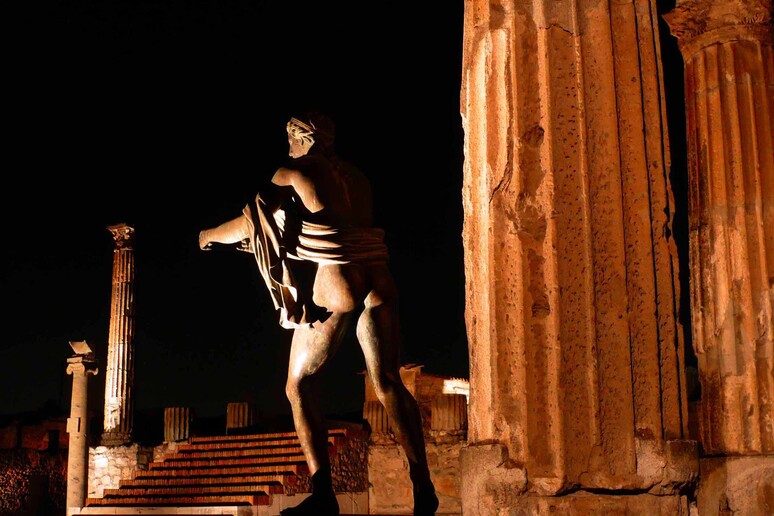A mysterious skull kept at Rome's
Accademia di Arte Sanitaria (Academy of Health Art) could belong
to Pliny the Elder, according to the results of two years of
research presented in the capital on Thursday.
The study was coordinated by art historian and journalist
Andrea Cionci in collaboration with experts from the national
research council (CNR), Rome's Sapienza University and the
universities of Florence and Macerata.
Pliny the Elder was a military commander and naturalist who
wrote the encyclopaedic Naturalis Historia (History of Nature).
He died in Stabiae near Pompeii while trying to rescue a
friend during the 79 AD eruption of Mount Vesuvius.
"A authentic mystery led us to close in on the possible
origins of the skull," Cionci told ANSA.
"The probability that it is Pliny the Elder's skull are high,
although there are never absolute certainties in archaeology.
"We can be certain that nothing has emerged in the studies
carried out up to now to contradict the attribution to Pliny".
The idea for the research project came from elements in a
book about the events of AD 79 written by Flavio Russo and
published by the defence ministry.
ALL RIGHTS RESERVED © Copyright ANSA











